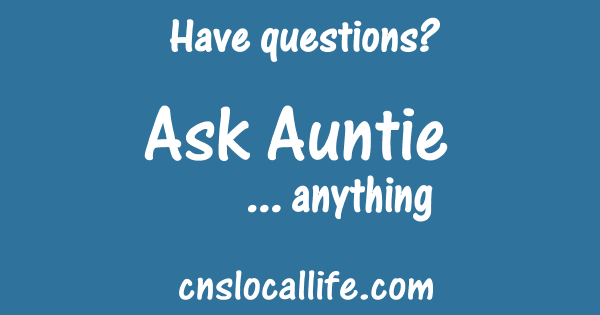 We have seen in the recent past the actions and articulations of the Cayman Islands Government (and at times other legislators) in regards to freedom of expression, free speech and freedom of the press. For instance: the Cayman(ian) Compass ad-pull and public rebuke by legislators (on both sides); the speaker’s recent comments and warning/veiled threat towards the media; the arrest of an artist for “offensive or obscene publications” while lawbreaking vandals destroyed his property and roam free among us to this day; the premier’s recent statements about negative coverage (akin to Trump’s “Fake News”); the refusal by the CIG to allow critics of the government on with government members on radio shows to challenge them in any way, shape or form.
We have seen in the recent past the actions and articulations of the Cayman Islands Government (and at times other legislators) in regards to freedom of expression, free speech and freedom of the press. For instance: the Cayman(ian) Compass ad-pull and public rebuke by legislators (on both sides); the speaker’s recent comments and warning/veiled threat towards the media; the arrest of an artist for “offensive or obscene publications” while lawbreaking vandals destroyed his property and roam free among us to this day; the premier’s recent statements about negative coverage (akin to Trump’s “Fake News”); the refusal by the CIG to allow critics of the government on with government members on radio shows to challenge them in any way, shape or form.
The CIG has gone as far as forming their own source of information in news in regards to the government that only includes positive stories done in a traditional news format and released like propaganda reels. These are all worrying signs for anyone familiar with history. All that being said my question is:
What is the current state of our free speech (if it exists at all) what kind of legal leeway does the government have in relation to free speech, expression and the press or media, and what can the people do to protect these rights?
If you think this is not a pressing issue then I would direct your attention to page 31 of the 2018 and 2019 Plan and Estimates document released by the “Unity government”, where the CIG clearly states their intention to introduce a “Defamation Bill” to “deal with the emerging issues involving the application of defamation law principles and the anonymous delivery of opinions which can cause reputational damage” — something that could easily and directly affect us all in this tiny jurisdiction. Am I going to need a lawyer with me when I decide to vent about government issues on FB?
Auntie’s answer: You have certainly touched on a lot of points in your question. I will do my best to address the main issues and try to keep things as uncomplicated as possible.
First of all, since you are concerned about freedoms of speech, expression and the press, let’s start with what is covered in the Penal Code concerning defamation. Under Part V (Offences Injurious to the Public in General), Section 171 refers to “A person who by print, writing, painting, effigy, tape, film, disc or other recording or by any means other than by gestures or spoken words or other sounds unlawfully publishes or facilitates the publication of any defamatory matter concerning another person with intent to defame that other person commits libel.”
However, Section 174 (Definition of unlawful publication) importantly says in part, “Any publication of defamatory matter concerning a person is unlawful within the meaning of section 171 unless – (a) the matter is true and it was for the benefit of the public that it should be published.”
The remaining sections in this part (up through S.179) cover all related definitions and ramifications, which I will leave you to read through.
Next we have the Cayman Islands Constitution, which an official with the Commissions Secretariat took me through, while stressing they could not address your query about the “legal leeway” that the government has concerning the freedoms you mentioned because the Human Rights Commission cannot give legal advice.
The official then explained that the Constitution does not specifically contain freedom of speech, “but those rights referenced by your reader would be guaranteed” under Section 11 on Freedom of Expression. This freedom is a “qualified right”, meaning it can only be lawfully restricted or taken away by the government in certain broadly defined circumstances.
It was also pointed out that a qualified right is usually followed by a list of criteria which explain the general circumstances when it will be lawful for the state to interfere with or restrict the right, balanced against the rights and interests of others.
Additionally, the official said, “it is important to remember that those matters such as allegations of defamation of character/reputation, which are ongoing between two individuals are civil matters. The Bill of Rights has a vertical application and thus breaches can only be alleged by an individual against a public official.
“The government does have an obligation to protect the rights of individuals and thus when passing local laws, the rights engrained in the Constitution will be taken into account. This introduces an ‘indirect’ horizontal application of human rights.”
You also mention a defamation bill. There has been talk of revising the Defamation Law (1995 Revision) and this was also looked at the by Law Reform Commission in their 2015 annual report, but so far nothing has come of it, so we have to stick with what is on the books.
I will say, though, that I share your concerns. I fear that we are heading down a dangerously slippery slope when those in government appear to take on the media because they may not like what is printed or broadcast. And let me repeat here that Section 174 of the Penal Code sets out truth and public benefit as a protection against an offence of defamation.
Lastly, I am compelled to note that the Standards in Public Life Law, ethics legislation aimed at keeping politicians and civil servants honest, was passed in 2016 but has yet to be implemented.
It seems to me that the government should ensure its own house is legally required to be in order before taking aim at the press for slights, whether justified or not. If that happens, there just might be fewer government issues that the public or the media will be able to find to complain about.
The laws mentioned in this column can be found on the CNS Library



Free Speech is a broad concept, and is quite well defined here. There is some danger in allowing totally unregulated free speech as it permits any vested interest or extremist to say what they like in a public forum.
Regulating free speech with a simple legal requirement for anything published to be provably true if challenged does not negatively affect anybody.
Personally I would be comfortable to see slightly more restriction, specifically on hate speech and promotion or inciting of criminal and antisocial behaviour. This would need to be defined to an international standard to prevent it being used by any administration to curtail legitimate criticism.
As everyone seems to be pissed off, I believe the correct balance has been struck.
Agree that restrictions on press freedom are a slippery slope. The check and balance is the defamation law – if press prints the truth, it shouldn’t worry. Equally, if they are loose in fact checking, those wronged have a legal solution.
However, am just as worried about press bias too. Amazing how much negative but true news doesn’t get printed because it is about an influential person or a profitable advertising client. Should be complete editorial independence. This means some companies avoid negative, public interest news simply by advertising.
CNS: Just to make a point here: one of the things that we both felt very strongly about when we started CNS is that we would publish the news as it is, regardless of advertising dollars. This is why some of the biggest advertisers have avoided us for the most part. This hasn’t influenced us.
Good business attitude CNS , and that will differentiate you from the fake news media which is becoming the norm today which is not very good in my view .
That’s ok for amateurs.
This is a dangerous level for an elected govt to descend upon. Now theyre trying to shut people up and shut them down? This is socialism and its best to get everyone of them out of office for good. All on both sides
Not what socialism is
Wow, Socialism really is the new “Reds under the Bed” isn’t it?!
Socialism has nothing to do with curtailing freedoms or controlling thought. Democratic Socialism (as used in many functioning successful countries) is simply based around the idea that all people have equal rights and opportunity to live and attempt to achieve success.
Cayman is a million miles away from a socialist state, and will never even get close to achieving that kind of governmental structure, so calm down.
CNS block what they like. It happens frequently.
They are a private company, so if you want to be heard outside of their lefty agenda, make your own blog.
It is life, deal with it.
CNS has the right to control what is posted on their site
They also let lunatic right wing contards post comments all the time
But as usual, with Christian fundamentalists, and conservatives you are somehow the victims because someone disagrees with you
Grow up
Did you actually read the question or their response, before you typed this?
Or maybe you are just a crap racist commenter whose lies aren’t worth publishing?
Nah, you sound like you’re the one who drank the Koolade.
They are trying to control every aspect of the media much like in the US. Anybody that doesn’t agree is castigated. What do you expect when certain news organizations are supported monetarily by certain people with lots of money?
The problem we have with the press is that it’s controlled by expats and used to demoralize the locals, if you think this government is getting tough just wait until the next election
Ah, the blame game. You can always read that Marl road rubbish. Highest standards of journalism there. Oh, and how is the Cayman school of journalism doing?
GIG watchdogs already occupy trip advisor. I wouldn’t be surprised if they are being paid. The same individuals respond to every post, trivializing problems, warnings, concerns and belittling or even mocking people who have different opinions ( just read responses to a question if stingrays are harmless). Any post that shows Cayman in a negative way is immediately marked for removal.
The printed press, local radio and TV can be held responsible and either prosecuted or sued as appropriate.
Things like ‘Facebook’ and ‘Twitter’ should be banned because there is no accountability and no way for an aggrieved individual to determine who published what.
President Jinping is that you?
I seen that the freedom of speech and more control by the Government started back a few years ago . I think that if the people don’t kick the Government to the curb and get a new one . BIG REGRETS WILL HAPPEN IN THE NEXT 2 YEARS .
Then in the main time till next election make them know it is going to happen, and don’t let them sweet talk you .
Any attack on the press is not to be tolerated. The only exception to that, in my humble view, is certain parts of the US and UK press (amongst others, but lets stick to the press we understand), that incite hatred and to suppress or twist the truth. Sounds contradictory, maybe, but hate speak and fake news need to be identified and stopped, as they do as the Russians seek to do, and interfere with normal democratic systems and processes. Look at what happens in both Russia and Venezuela if you don’t believe me.CNN’s fact checker is a pretty good way to see who is telling the truth on the international stage, and in my view the BBC is pretty independent and impartial, as news should be. As far as Cayman is concerned, CIG attacks are something to be concerned about, and a bit of a surprise from someone as intelligent as Alden, unless its Mac behind it. CNS does its best to keep us honest. Some claim the Compass is a Dart mouth piece, which it may or may not be, but it does not do hate speak. I am afraid it may come back to something as simple as Egos, people don’t like to hear criticism. However, it is criticism that may make us think, and may make the public aware of attempts to become a little too autocratic for democracy’s taste. The Port is a great example of that…my feeling is no-one except a few want it, whilst CIG and its minions who will benefit are trying to convince us that everyone is for it.
Good post!
CNN and ‘fact’ in the same sentence???
Joseph Goebbels : If you repeat a lie often enough, people will believe it, and you will even come to believe it yourself.
Trump says “fake news” over and over so that when the media points out that he’s a lying, corrupt, narcissistic kleptomaniac the right wing sheep will say something like “CNN and ‘fact’ in the same sentence?”
Anonymous 4:08 pm , your comment very much cover the issue in the CI . I believe that the News Medias and the people shouldn’t sit down and let this issue go uncorrected .
The issue of taking away the Freedom of speech and Freedom of the Press started when Mr Leggie made the comment of the corruption in the Islands . You seen who replied to him and what his reply was .
Like you said that they are Dart’s mouthpiece, I think that they are also the Premier’s too and dead scared of him now . So all of that doesn’t help the situation .
The press can defend itself well enough but seems to enjoy whining about criticism.
Dat you Mac?
I can’t say I ever hear our press whining. That said, the politicians never stop whining and wanting us all to stroke their egos.
Press whines all the time.